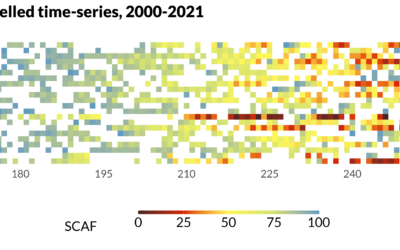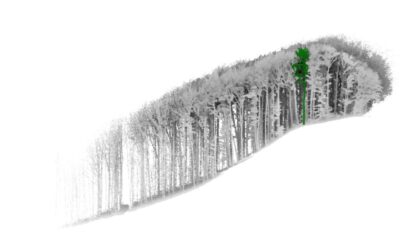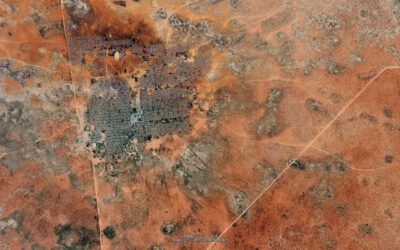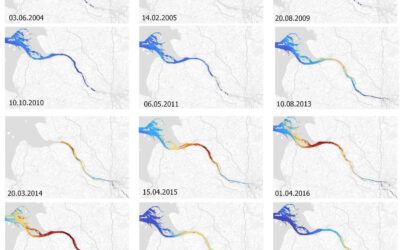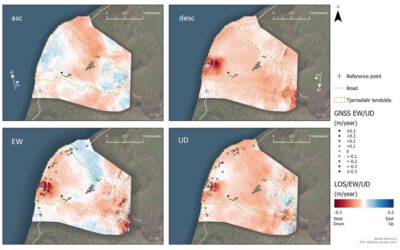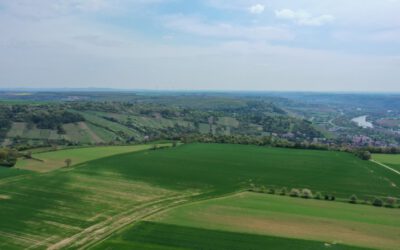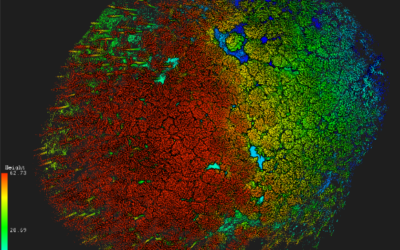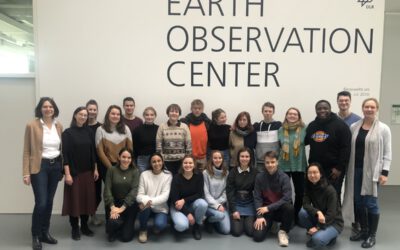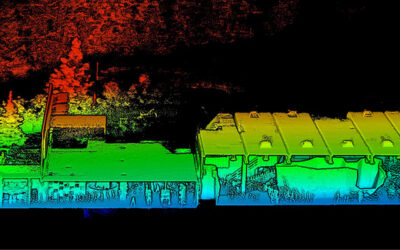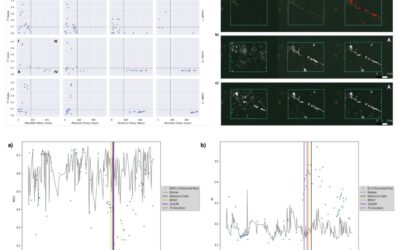Aim
In this course we will learn the alternative image analysis paradigm of object-based image classification. Image objects are areas in images which consist of pixels from the same land-cover class (e.g. buildings, water surfaces, vegetation) and allow the application of additional image classification methods in comparison to pure pixel-based methods and the integration of multi-modal date (e.g. vector data).
Content
In the course we will use satellite images and high resolution aerial images in combination with vector data and analyze various image classification methods (nearest neighbor -> random forests -> deep learning) to extract relevant information from the images.
We will use the software “eCognition”.
The course will be held on 3 days in Würzburg plus an introductory lecture which is being held online.
Session 1: getting to know to image objects and eConition software, basic classification methods
Session 2: advanced classification (Machine Learning)
Session 3: Deep Learning
Coding
Software
Techniques
Content
General Course News and Updates
MSc defense Sub-seasonal snowline dynamics of glaciers in Central Asia from multi-sensor satellite observations, 2000-2021
MSc defense (MA2) by Dilara Kim On Monday, September 18, 2023 Dilara Kim will present her Msc Thesis at 13:00 “Sub-seasonal snowline dynamics of glaciers in Central Asia from multi-sensor satellite observations, 2000-2021” From the abstract: Glaciers are an important...
Innovation Lab Presentation by Konstantin Müller
On Tuesday, July 18 at 11 a.m. Konstantin Müller will hold his Innovation Lab Presentation "Analysis of Twitter over New Year's Eve" From the abstract: Until this day, scientists have figured out urban data and structures as morphological or topological...
Msc Defense by Katrin Wernicke
On Tuesday, July 18 at 10 a.m. Katrin Wernicke will present her MSc Thesis "Deep Learning for Refugee Camps – Mapping Settlement Extents with Sentinel-2 Imagery and Semantic Segmentation" From the abstract: The number of people forced to flee their homes has...
MSc Defense by Nora Nieskens
MsC Defense by Nora Nieskens On Friday, September 08, 2023 at 11 a.m. Nora Nieskens will present her Msc Thesis “Estuaries in transition: Earth observation-based analysis of the turbidity dynamics in selected North Sea estuaries” in room 00.B.09 in John-Skilton-Str....
Detection of slope deformation at the Tröllaskagi peninsula, N-Iceland, using Sentinel-1 DInSAR time series
MSc defense (MA2) by Ása Dögg Adalsteinsdóttir On Monday, September 18, 2023 Ása Dögg Adalsteinsdóttir will present her Msc Thesis at 14:00 Detection of slope deformation at the Tröllaskagi peninsula, N-Iceland, using Sentinel-1 DInSAR time series Thema: MSC...
MSc defense by Vanessa Rittlinger
On Tuesday, October 24, 2023 at 10:00 a.m. Vanessa Rittllinger will present her master thesis on “Detection of landslides in space and time using optical remote sensing data – A case study in South Tyrol” in the conference room 01.B.03 in John-Skilton-Str. 4a/1st...
MSc defense and Inno-Lab presentations
On Tuesday 20th of December at 12am we will have various presentations MSc defense by Kevin Yomi on "Evaluation wildfire activity in conflict-affected areas using earth observation and panel regression models: a case study of Borno State, Nigera, from 2003-2020" In...
EAGLEs visit DLR EOC
After a long break due to covid we resumed the EAGLE visit of DLR EOC. Many EAGLEs from the current generation and quite some of the past (covid) generations joined this event and listened to many talks by DLR researchers. Some of the presenters were even former...
Social event in the boulder gym
Last week we spend a few hours in the boulder hall to enjoy a day without courses, do some climbing and have plenty of time to chat. Many EAGLEs from the current and old generations joint us as well as many lecturer. Beside the social event we also collected Lidar...
MSc defense Caroline Busse
On Tuesday 22nd of November at 1pm we will have the MSc thesis defense by Caroline on "Change Detection using Sentinel-1 and Sentinel-2 Time Series: A Comparison of Models for the Detection of Forest Disturbances." from the abstract: "Forests provide essential...

